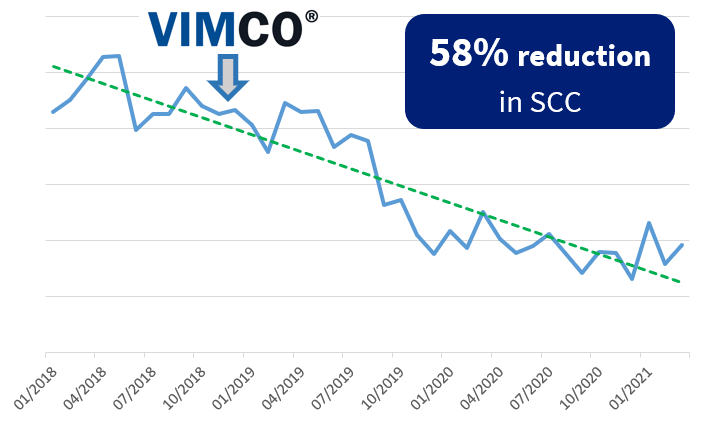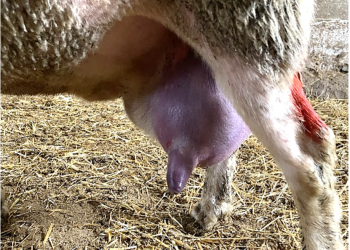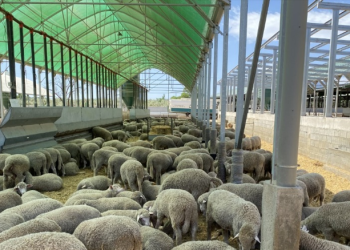What are the consequences of mastitis?
Mastitis in small ruminants has a significant economic cost on farming. But, where do the losses come from?
● Increased mortality: due to hyperacute cases (gangrenous mastitis), or animal sacrifices due to lesions in the udder or animal welfare.
● More replacement: due to the death of productive animals. It represents a high cost.
● Reduced milk production: in cases of clinical mastitis, milk production can be reduced by more than 70%, and in subclinical cases, the average is estimated to be 15%.
● High somatic cells: means a reduction in milk quality and quantity. In some countries, it leads to penalties in milk prices.
In the milking parlour, healthy animals are easily infected, thus mastitis spreads throughout the flock.
What can we do to fight mastitis?
Good management and hygiene are essential for controlling mastitis. Andrés explains the measures he applies on his farm:
● Cleaning and disinfecting facilities: paying special attention to beds.
● A good milking routine: post-dipping is very important.
● Maintenance of the milking machine: perform periodic checks including evaluation and replacement of necessary parts and confirmation of parameters such as vacuum and pulsations.
● Vaccination: it has been demonstrated that protection against biofilm-producing Staphylococcus is a key tool.
It is important to implement a mastitis control programme in the flock, which includes vaccination.
At the los Tollos livestock farming, they had a high somatic cell count (SCC), which indicated a high incidence of mastitis in sheep. Their veterinary surgeon therefore recommended vaccination.
What benefits have they obtained from vaccination?

After vaccination with VIMCO®, they found:
● Increased production.
● Less deaths, and therefore less replacement.
● Reduction in SCC and increase in milk quality, which has benefited their cheese production.
● In general, higher profits from the farm.
Andrés: “I recommend the vaccine, because you have less deaths, greater production, better milk quality, and the cheese producers will pay you more for your milk”.
Article written by:
Tania Perálvarez Puerta. Product Manager Small Ruminants Unit – HIPRA


